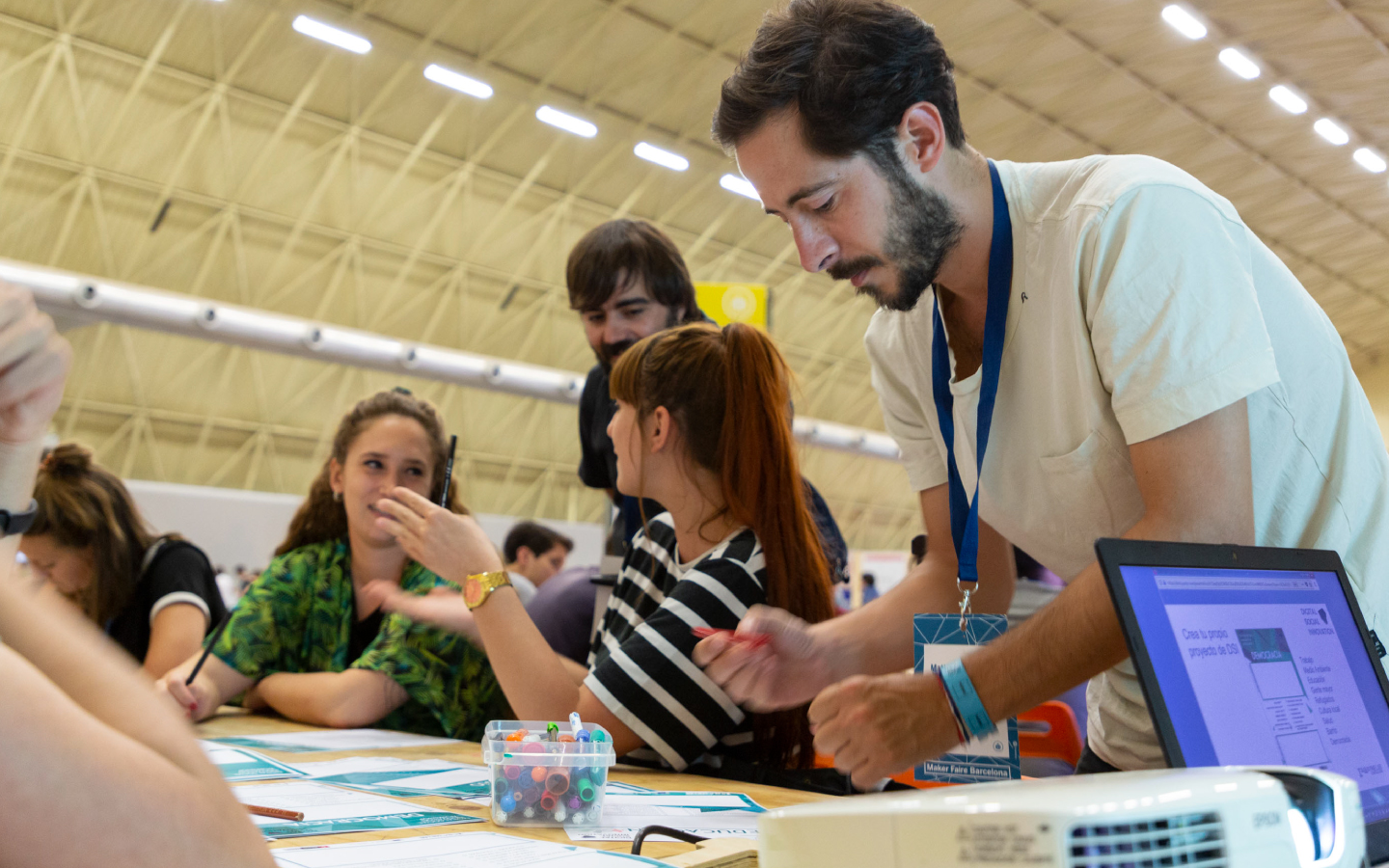
Designing Participatory Processes for Urban Research
Building inclusive processes for meaningful engagement in urban transformation
Area
Productive Cities
Type of Project
Community engagement
The Goal
As cities face increasing complexity in governance, sustainability and participation, public institutions and researchers must find new ways to connect with communities. For the SMARTDEST research project, the GRATET research group from the Universitat Rovira i Virgili (URV) sought expert support in designing a participatory process that would engage key stakeholders in Barcelona around issues of urban tourism, exclusion and regeneration.
They turned to Fab Lab Barcelona to lead a process that would be grounded in co-design, critical urbanism and action research methodologies—drawing from real-world experiences in citizen sensing, community engagement and design-driven research.
Our Contribution
Fab Lab Barcelona designed and implemented a tailored facilitation strategy for participatory processes adapted to the goals and scope of the SMARTDEST project. The proposal was structured in four phases, supported by an interdisciplinary team of researchers from the lab, with expertise in co-creation, urban planning, sustainability and systemic design.
Phase 0 – Assessment
Initial alignment meetings to define objectives, map the context and identify the strategic entry points for action.
Phase 1 – Integration with CENTRINNO
Exploring synergies between SMARTDEST and CENTRINNO, a European project coordinated by Fab Lab Barcelona. This included blog dissemination and a co-design workshop to define shared frameworks.
Phase 2 – Stakeholder Engagement
Mentoring and capacity building with CityLab’s team to facilitate outreach and engagement of local stakeholders and community actors.
Phase 3 – Participatory Implementation
Design and facilitation of a collaborative decision-making process (e.g. Delphi Method), aligning with the project’s “Community of Practice” framework. The team also documented the process and produced a final report.
Methodology
Our process was rooted in:
- Participatory design and collective intelligence
- Action research applied to real urban challenges
- Narrative-based facilitation to frame shared visions
- Integration of open and distributed tools for citizen engagement
Fab Lab Barcelona leveraged its expertise from major EU projects like Making Sense, Distributed Design, and CENTRINNO, translating global methods into local impact.
Impact
- Co-designed participatory frameworks aligned with academic and community expectations
- Supported the definition of local narratives within the SMARTDEST project
- Empowered researchers and facilitators with applied methodologies
- Contributed to building a replicable model of urban stakeholder engagement
- Strengthened connections between academic research and real urban communities
Project Team
Alessandra Schmidt (Coordination & Operations)
Matías Verderau (Social Innovation)
Milena Juárez (Sustainability & Action Research)
Pablo Muñoz (Urban Planning)
Marion Real (Systemic Design & Co-creation)
Who It’s For
- Researchers and academic institutions working on urban innovation projects who aim to bridge academic knowledge with local narratives and community realities through co-design and participatory action research.
- Public administrations and urban policymakers facing the challenge of designing more inclusive, transparent, and citizen-centered strategies to address complex issues such as urban tourism, social exclusion, and regeneration.
- Facilitators, citizen collectives, and urban labs interested in activating collaborative decision-making, collective intelligence, and community-centered design as tools for systemic change.
Partners
Want to co-create your next participatory process?
Fab Lab Barcelona supports public institutions, researchers and urban labs in creating inclusive, future-oriented participatory strategies. Let’s talk:
Noel Criado, Strategic Partnerships Lead: [email protected]
